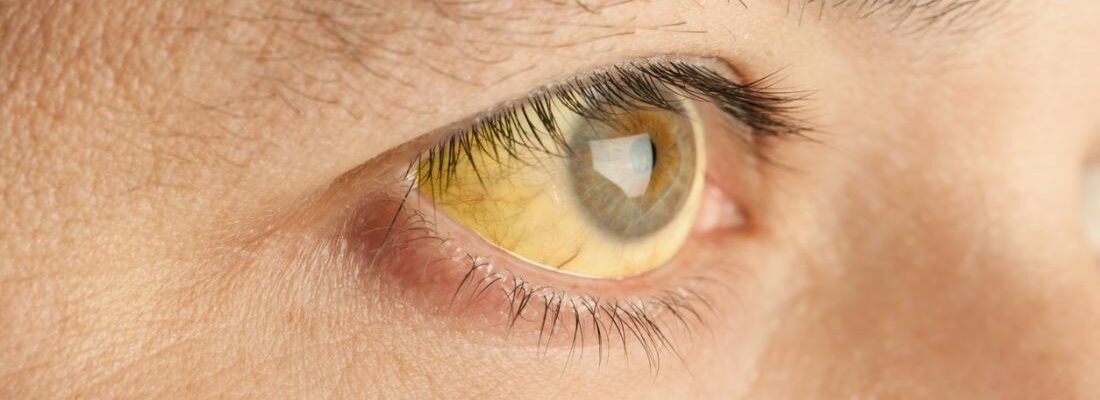Overview
Gilbert Syndrome is a mild genetic liver disorder characterized by the liver’s reduced ability to process bilirubin, a yellow pigment produced during the breakdown of red blood cells. It is caused by a mutation in the UGT1A1 gene, which reduces the activity of an enzyme responsible for converting bilirubin into a form that can be excreted from the body. This leads to a slight buildup of unconjugated bilirubin in the bloodstream, a condition known as mild hyperbilirubinemia.
The effects of Gilbert Syndrome are usually minimal and often asymptomatic. However, some individuals may experience mild episodes of jaundice, where the skin and eyes take on a yellowish tint, particularly during periods of stress, fasting, dehydration, illness, or after intense physical exertion. Other nonspecific symptoms, such as fatigue or abdominal discomfort, may occasionally occur, but they are not directly caused by the syndrome.
Gilbert Syndrome typically does not require treatment as it is a benign condition that does not lead to serious liver damage or health complications. For individuals experiencing occasional symptoms, managing triggers such as dehydration, skipping meals, or overexertion can help prevent bilirubin levels from rising. In rare cases where jaundice becomes more noticeable or persistent, medical evaluation is recommended to rule out other underlying conditions.
Overall, Gilbert Syndrome is considered harmless, and most individuals with the condition lead normal, healthy lives. Awareness and understanding of the syndrome are key to managing it effectively and avoiding unnecessary concern when symptoms arise.
Table of Contents
When to See a Doctor
Gilbert Syndrome is generally a benign condition that does not require frequent medical attention. However, there are certain situations where consulting a healthcare professional is recommended to ensure proper management or rule out other potential causes of symptoms.
Signs to see a doctor:
- Persistent or severe jaundice. If yellowing of the skin or eyes becomes pronounced, lasts for an extended period, or occurs frequently, it is important to seek medical advice. While mild jaundice is common in Gilbert Syndrome, severe symptoms may indicate another liver or blood disorder.
- Unusual or worsening symptoms. If you experience fatigue, abdominal pain, nausea, or other symptoms that seem out of proportion or unrelated to known triggers like fasting or stress, a doctor can help determine whether another condition may be present.
- Unexplained changes in health. Sudden weight loss, dark urine, pale stools, or other signs of liver dysfunction should be evaluated to rule out serious underlying conditions.
- Pre-existing conditions or medication concerns. If you have another health condition or are taking medications that could affect liver function, discuss your diagnosis with your doctor. Gilbert Syndrome can influence the metabolism of certain drugs.
Seeking medical advice in these situations ensures that your symptoms are properly evaluated and that any potential complications are addressed. Early consultation helps maintain overall health and provides reassurance in managing the condition effectively.
What Type of Doctor to Seek
If you suspect you have Gilbert Syndrome or have been diagnosed with it, your first point of contact should be a primary care physician. They can evaluate your symptoms, review your medical history, and order basic blood tests to assess bilirubin levels and liver function. For many patients, a primary care doctor can confirm the diagnosis and provide guidance on managing the condition without the need for further intervention.
In more complex cases or if additional concerns arise, you may be referred to a gastroenterologist or hepatologist, specialists in digestive and liver health. These doctors can perform advanced testing, such as genetic testing or liver imaging, to confirm the diagnosis and rule out other liver conditions. Consulting a specialist is particularly useful if symptoms are severe, persist despite managing triggers, or are accompanied by other signs of liver dysfunction.
What to Expect from Your Visit to a Doctor
During your visit, the doctor will begin by asking about your symptoms, medical history, and any potential triggers, such as fasting, stress, or recent illness. They may inquire about the frequency and duration of symptoms like jaundice, fatigue, or abdominal discomfort. This discussion helps the doctor determine whether your symptoms align with Gilbert Syndrome or another condition.
You can expect basic diagnostic tests, including blood tests to measure bilirubin levels and liver function. If bilirubin is elevated but other liver function tests are normal, this supports a diagnosis of Gilbert Syndrome. In some cases, genetic testing may be recommended to confirm the presence of the UGT1A1 gene mutation. The doctor may also rule out other liver or blood disorders through additional tests or imaging, such as an ultrasound. At the end of the visit, you’ll receive guidance on managing the condition, including avoiding triggers, and reassurance about its benign nature.
Gilbert Syndrome Treatment Options

Image Source: unsplash.com
Gilbert Syndrome is a benign condition that typically does not require medical treatment. Most individuals with this syndrome experience minimal to no symptoms, allowing them to lead normal lives. However, for those who experience occasional symptoms or find them disruptive, the following treatments and lifestyle adjustments may help manage the condition effectively:
Medical Treatments
- Phenobarbital. In rare cases where bilirubin levels are significantly elevated, a doctor may prescribe phenobarbital to enhance the liver’s ability to process bilirubin. This medication lowers bilirubin levels, alleviating symptoms such as jaundice, nausea, or fatigue. It is typically used short-term and under strict medical supervision.
Lifestyle and Preventative Measures
- Get adequate sleep and rest. Sleep deprivation can trigger symptoms in individuals with Gilbert Syndrome. To prevent this, aim for 7–8 hours of restful sleep each night to allow the body to recover and maintain normal bilirubin processing.
- Avoid heavy or intense exercise. Strenuous physical activity can stress the muscles and increase bilirubin levels. Engage in moderate, balanced exercises instead to maintain overall health without triggering symptoms.
- Stay hydrated. Dehydration is a known trigger for Gilbert Syndrome symptoms. Drink plenty of water, especially in hot weather or during physical activity, to keep your body well-hydrated.
- Eat regularly and avoid fasting. Skipping meals or prolonged fasting can elevate bilirubin levels. Maintain a consistent eating schedule and consume balanced meals to support normal liver function.
- Manage stress effectively. High stress levels can exacerbate symptoms. Relaxation techniques such as yoga, meditation, or listening to calming music can help reduce stress and minimize symptom triggers.
- Limit or avoid alcohol. Alcohol consumption can worsen symptoms and stress the liver. Many individuals with Gilbert Syndrome report improved well-being by reducing or eliminating alcohol intake.
- Communicate your condition to healthcare providers. If diagnosed with Gilbert Syndrome, inform other doctors or specialists about your condition. Some medications can interfere with bilirubin metabolism and may need to be avoided or adjusted.
By incorporating these strategies, individuals with Gilbert Syndrome can effectively manage their condition and minimize symptoms. Regular check-ins with a healthcare provider and maintaining a healthy lifestyle are key to living symptom-free and preventing complications.
Gilbert Syndrome Prognosis
The prognosis for individuals with Gilbert Syndrome is overwhelmingly positive, as the condition is benign and does not lead to long-term health complications. Most patients manage symptoms effectively through lifestyle adjustments or, in rare cases, medical treatment. Below is an overview of the expected outcomes for each treatment and management option:
Medical Treatments
- Phenobarbital. When prescribed for elevated bilirubin levels, phenobarbital effectively reduces symptoms like jaundice. Most patients experience significant improvement while on the medication, though it is typically used for short periods due to potential side effects.
Lifestyle and Preventative Measures
- Get adequate sleep and rest. Consistent sleep helps prevent symptom flare-ups, allowing most individuals to maintain normal bilirubin levels and enjoy improved energy and well-being.
- Avoid heavy or intense exercise. Switching to moderate exercise significantly reduces physical stress on the body, helping to prevent bilirubin spikes and associated symptoms.
- Stay hydrated. Adequate hydration prevents triggers like dehydration-induced jaundice, ensuring better symptom control and overall health.
- Eat regularly and avoid fasting. Regular meals stabilize bilirubin metabolism, reducing the likelihood of symptom recurrence and maintaining liver efficiency.
- Manage stress effectively. Stress management techniques help prevent symptom flare-ups and improve quality of life, making them a cornerstone of effective management.
- Limit or avoid alcohol. Avoiding alcohol reduces liver stress, minimizing symptom triggers and supporting long-term liver health.
- Communicate your condition to healthcare providers. Informing doctors ensures safe medication choices, preventing adverse reactions and complications related to Gilbert Syndrome.
With proper management and adherence to these strategies, individuals with Gilbert Syndrome can maintain excellent health and experience minimal disruption to their daily lives. Early recognition of triggers and consistent implementation of preventive measures are key to living symptom-free with this condition.


